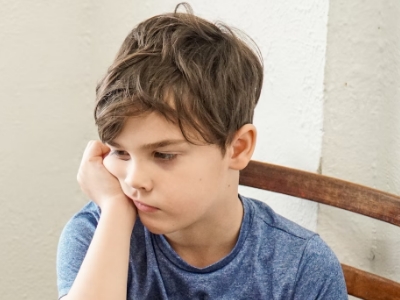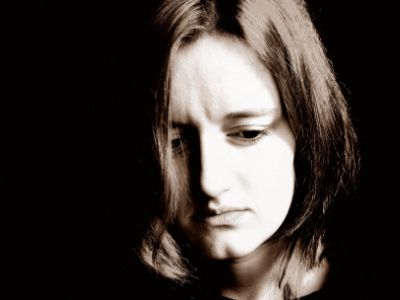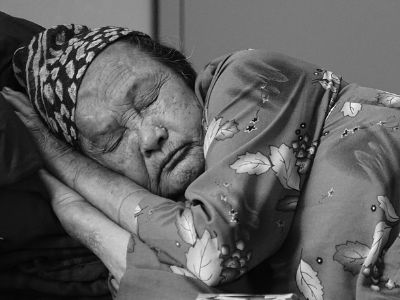What is Seasonal Affective Disorder?
Seasonal affective disorder, or SAD, is a depression that happens to a person only at a specific time of year. It causes a person to become depressed in fall or winter when days are shorter, and it gets dark earlier. It is brought on by the brain’s response to seasonal changes in daylight. When the daylight hours grow longer again, the sadness lifts. Take steps to keep your mood and motivation steady throughout the year.
What are the Symptoms of Seasonal Affective Disorder?

- Mood swings. The condition can cause a mood that is sad, depressed, or irritable. It can make people feel hopeless, discouraged, or worthless. They may cry or get upset more easily.
- Negative thinking. A person can become more self-critical or more sensitive to criticism. They may complain, blame, find fault, or see problems more often than usual.
- Lack of fun. People with this condition may lose interest in things they normally like to do. They may lose interest in friends and stop participating in social activities.
- Fatigue. People may feel tired, low on energy, or need more motivation to do things. To them, everything can seem like it takes too much effort.
- Sleeping troubles. A person may sleep much more than usual. They may need help getting up and ready for school or work early in the morning.
- Changes in eating. It may bring on cravings for comfort foods such as sugar and carbs and the tendency to overeat. Because of this change in eating, SAD can result in weight gain during winter.
- Trouble concentrating. Like any depression, it can make it hard to focus and may affect schoolwork and grades.
Seasonal Affective Disorder and Bipolar Disorder
People who have bipolar disorder are at increased risk of SAD. In some people with bipolar disorder, episodes of mania may be linked to a specific season. For example, spring and summer can bring on symptoms of mania or a less intense form of focus, worry, tension, and irritability. They may also experience sadness during the fall and winter months.
What are the Causes of Seasonal Affective Disorder?
- Circadian rhythm. The low level of sunlight in fall and winter may cause winter-onset SAD. This decrease in sunlight may disrupt your body’s internal clock and lead to feelings of depression.
- Serotonin levels. A drop in serotonin, a brain chemical that affects mood, might play a role in this condition. Reduced sunlight can cause a decline in serotonin which may trigger depression.
- Melatonin levels. The change in season can disrupt the balance of the body’s level of melatonin, which plays a role in sleep patterns and mood.
Can You Prevent Seasonal Affective Disorder?
There is no real way to prevent the onset of this disorder, but if you take steps to manage the symptoms, you can prevent it from worsening. Managing the symptoms can also reverse or head off serious changes in mood, appetite, and energy levels, as you can predict the time of the year in which these symptoms may start.
Treatment can help prevent complications, especially if the affective disorder is diagnosed and treated before symptoms get bad. Some people find it helpful to begin treatment before symptoms normally start in the fall or winter and then continue treatment past the time symptoms normally go away.
What is the Treatment of SAD?

Treatment for the seasonal affective disorder may include light therapy, psychotherapy, and medications. When prescribed light therapy or an antidepressant, let your doctor or mental health professional know if you have bipolar disorder.
- Light therapy. In light therapy, you sit a few feet from a special light box so that you are exposed to bright light within the first hour of waking up each day. Light therapy mimics natural outdoor light and appears to cause a change in brain chemicals linked to mood. Light therapy is one of the first-line treatments for fall-onset SAD.
- Psychotherapy. A type of psychotherapy known as cognitive behavioral therapy can help you learn healthy ways to cope with the condition, especially by reducing avoidance behavior and scheduling meaningful activities. It also enables you to identify and change negative thoughts and behaviors that may make you feel worse.
- Medications. It may be recommended that you start taking an antidepressant before your symptoms typically appear every year. Amitriptyline is an antidepressant used for conditions like SAD. It works by increasing a chemical called serotonin in your brain. It can improve your mood.
Depression in Children: Symptoms and How to Treat It?
Depression in children is an uncommon case. However, many children have fears and worries and may feel sad and hopeless from time to time. Strong fears may appear at different times during growth. Although fears and worries are typical in children, persistent or extreme forms of fear and sadness could be due to anxiety or depression.
Symptoms of Depression in Children

- Crankiness or anger
- Continuous feelings of sadness and hopelessness
- Social withdrawal
- Feelings of worthlessness or guilt
- Impaired thinking or concentration
- Thoughts of death or suicide
- Physical complaints such as stomachaches
- Frequent headache
- Changes in appetite
- Excessive sleepiness or lack of sleep
- Sensitive to rejection
- Changes in appetite, either increased or decreased
- Trouble concentrating
- Fatigue and low energy
- Trouble during events and activities
- Loss of hobbies and interest
What Causes Depression in Children?
Up to 3% of children and 8% of adolescents in the U.S. have depression. The condition is more common in boys under the age of 10. But by age 16, girls have a greater incidence of depression. It can be caused by any combination of things that relate to physical health, family history, life events, environmental influence, genetic vulnerability, and biochemical disturbance.
How Common is Depression in Children?
Depression is among the most common mental health disorders in children. About 3% have depression which tends to be higher in older children and teenagers between the ages of 12 and 17. An estimated 3.2 million adolescents aged 12 to 17 in the US had at least one major depressive episode. This number represented 13.3% of the U.S. population aged 12 to 17.
How to Diagnose Depression in Children?
If your child has been experiencing symptoms of depression for at least 2 weeks, schedule an appointment with their doctor to make sure there are no physical reasons for the symptoms and to ensure proper treatment is provided. A consultation with a mental health care professional who specializes in children is also recommended.
A mental health evaluation should include interviews with you and your child and any other psychological testing that is needed. It can be beneficial to get information from teachers, friends, and classmates to show that these symptoms are consistent during your child’s various activities and are a marked change from previous behavior. In addition to information about the child’s personal characteristics, questionnaires can be very helpful in helping diagnose depression in children.
Managing the Condition and Staying Healthy
It is not known exactly why some children develop this condition but factors may play a role, including biology and temperament. Life experiences such as trauma, maltreatment, bullying, rejection, and stress can trigger the condition. Here are ways you can do as a guardian or parent on managing this condition.
- Ensure that your child maintains a healthy eating plan centered on fruits, vegetables, lean protein sources, and nuts and seeds.
- Allow your child to participate in physical activities every day. You can also plan recreational activities at home to prevent them from isolating.
- Be a good listener to your child and be open-minded to understand that things are not the same for everybody.
- Let your child get the recommended amount of sleep each night.
- Ensure that you are always present especially during the hard times and help your child come up with healthy solutions to his/her problems.
- Practice mindfulness or relaxation techniques.
How to Treat Child Depression?
Treatment options for children with depression are like those for adults. Doctors may recommend medication, psychotherapy, and or a combination of both. During psychotherapy, your child will talk to a licensed and trained mental health care professional to identify and work through the factors that may be triggering the depression.
There is a wide range of available antidepressants and your doctor will choose the best treatment for your child. Note that there no single best antidepressant, and the best one for your child depends on the symptoms and individual needs.
What is Melancholia: Symptoms, Causes, and Treatment?
What is Melancholia?
Melancholia is a term used to describe the feeling of being deeply sad and desperate since that time. Also known as melancholic depression is a type of depression. About 15%-30% of people have this type of depression. This condition may have more severe symptoms than other types of depression and it’s harder to treat.
It is a major mental health condition characterized by persistent and intense feelings of sadness and hopelessness. The disorder can affect many areas of life and may also impact mood and behavior as well as various physical functions. People with this condition often lose interest in activities they once enjoyed and have trouble getting through the day. Occasionally, they may also feel as if life isn’t worth living.
What are the Symptoms of Melancholia?

- Depression that is consistently worse in the morning
- A different quality of depressed mood characterized by profound despair, sadness, or emptiness
- Sleep badly and wale early in the morning
- Lose their appetite and lose weight
- Extreme or inappropriate guilt
- Think about suicide
What Causes Melancholia?
The typical causes of this condition are changes in the brain and hormonal pathways. This is due to the malfunction of the adrenal glands, hypothalamus, and pituitary glands. These glands release chemicals that regulate stress and appetite. With this condition, you may have high levels of steroids and cortisol. These are hormones that are made by your adrenal glands when you are stressed. This affects many different functions in your body, including your metabolism, appetite, and memory. You may also have changes in brain signals called neurons. These signals affect how you respond to your surroundings.
What is the Treatment for Melancholia?
Psychotherapy and medication are often part of the treatment plan for this condition because it is believed to have a biological root. Causes of melancholic depression appear to be mainly due to genetic makeup and brain function, necessitating a medication that works on biological causes like brain function. Types of antidepressants used for this condition are:
- Selective serotonin reuptake inhibitors. These works by changing the way the neurotransmitter serotonin works in the brain, thereby improving mood
- Serotonin-norepinephrine reuptake inhibitors. It affects the way both serotonin and norepinephrine work in the brain.
- Norepinephrine and dopamine reuptake inhibitors. It affects norepinephrine and dopamine.
- Atypical antidepressants. These medications affect brain chemicals that seem to improve mood.
In addition to medication, psychotherapy is also used to treat people who have MDD with melancholic symptoms. A combination of these two treatment methods is usually more effective than either approach on its own. This involves meeting with a therapist on a regular basis to discuss symptoms and related issues. It helps a patient in the:
- Adjusting to a crisis or other stressful event
- Managing or replacing negative beliefs and behaviors with positive, healthy ones
- Improving communication skills and producing healthy coping mechanisms to solve problems
- Regain a sense of satisfaction and control in life and boost self-esteem
Medication Used for Melancholia
Venlafaxine. It is an atypical antidepressant drug referred to as serotonin and noradrenaline reuptake inhibitor. It works by increasing the levels of mood-enhancing chemicals called serotonin and noradrenaline in the brain. The side effects of this medication include feeling sick, headaches, sweating, and dry mouth are common. They are usually mild and go away after a couple of weeks.
Warnings and Precautions When Taking Venlafaxine

- It can make your heart beat faster or cause an irregular heartbeat, so your doctor may not think it is suitable if you are already taking medicine for your heart.
- Talk to your doctor if you have a history of blood pressure and heart problems before taking this medication.
- If you are pregnant or planning to get pregnant, avoid this medication or talk to your doctor about its risks and benefits.
- Take this medication as instructed by your physician and avoid inconsistent dosing.
Can Depression Affect Others?
What is Depression?
Depression is a mood condition that causes people persistent feelings of sadness and loss of interest in something. That is also called major clinical depression or depressive disorder. It affects the way you think, feels, and behave and leads to a change in emotional and physical problems. You may struggle to do normal day-to-day activities, and sometimes you may feel as if life is not worth living.
Does Depression Affect Other People?
This condition affects your relationships with family and friends. While a person is stressed by this symptom on their own, it also takes a toll on those around them. Relationships may also worsen symptoms of depression as it often increases feelings of loneliness, sadness, and isolation. This depression disorder, in a way, can push others away, leaving the way many people feeling more isolated and withdrawn than ever.
In some cases, this condition creates space for the person, but this often worsens their state of being. Instead of taking symptoms personally, it is necessary for family and friends to be determined in their care and support. Helping to guide someone towards treatment is critical and remaining supportive of someone with this condition is vital even though their symptoms have them attempting to push others away.
General Symptoms of Depression

- Feelings of sadness and hopelessness
- An angry outburst, frustration, and irritability
- Sleep disturbances such as insomnia or oversleeping
- Trouble thinking and concentrating
- Loss of interest or pleasure in most of your normal activities
- Lack of energy, even on small tasks
- Appetite loss and weight loss for some
- Weight gain and increased cravings
- A feeling of guilt, worthlessness, and self-blame
- Agitation and restlessness
- Frequent thoughts of death
- Suicide attempts and or suicidal thoughts
- Unexplained back pain and other physical problems
- Slowed thinking, slurred speech, and slow body movements
When to Get Immediate Help?
If you or someone have symptoms of this condition, talk to your doctor right away. Call 911 if someone is attempting suicide or other forms of self-harm.
Typical Causes of Depression
- Biological differences. People with this condition appear to have physical changes in their brains. The significance of these changes is still uncertain but may eventually help pinpoint causes.
- Hormones. An imbalance of hormones can be a cause of this condition. This includes hormonal changes during and after pregnancy, menopause, and thyroid problems.
- Brain chemistry. The naturally occurring chemicals in the brain may also trigger this condition. Changes in the function and effect of these neurotransmitters and how they interact with neurocircuits involved in maintaining mood stability may play a significant role in depression and its treatment.
- Inherited traits. This is more common in people whose blood relatives also have this condition. Researchers are trying to find genes that may be involved in causing this problem.
Treatment for Depression

A combination approach of psychotherapy and medication is helpful in treating clinical conditions. Your primary care doctor or psychiatrist can prescribe medications to relieve symptoms. If you have severe depression, you may need a hospital stay, or you may need to participate in an outpatient treatment program until your symptoms improve.
Medication Used for Depression
Fluvoxamine. It blocks the reuptake of serotonin and increases its amount in central synapses. It is used very effectively to treat symptoms associated with depression. Fluvoxamine also helps in relieving the imbalance in the neurons, which is believed to give rise to anxiety and depression.
Coping and Support for Depression
- Cut back on obligations that are far from your capacity.
- Try doing a journal to improve your mood and to healthily express your anger, fear, pain, and other emotions.
- Locate helpful groups such as assistance programs and religious groups that offer help for mental health concerns.
- Try to participate in social activities and get together with family or friends regularly.
- Learn ways to relax and manage your stress.
- Plan your day and learn time management to reduce stress and improve your organizational skills.
Social Anxiety: Symptoms and Treatment
What is Social Anxiety?
Social anxiety disorder leads to avoidance which can interrupt your life. Severe conditions may affect your daily routines, relationships, school, work, or other activities. It can be a chronic mental health condition, but learning coping skills in psychotherapy and taking medications can help you gain confidence and improve your ability to interact with others.
It’s normal to feel anxious in some social situations. For instance, going to a game or giving a presentation may cause that feeling of cramps in your stomach. But in this condition, everyday interactions cause significant anxiety, self-consciousness, and embarrassment because you fear being examined or judged negatively by others. This is also known as social phobia.
What are the Symptoms of Social Anxiety?
This condition is more than shyness. It is a fear that does not go away and affects everyday activities, relationships, self-confidence, and school or work life. Numerous people rarely worry about social situations, but someone with this condition feels overly anxious before, during, and after them. Typical symptoms are:

- Avoid or worry a lot about social activities, such as group conversations.
- Avoid eating with company and parties.
- Worrying about everyday activities, such as starting conversations
- Find it difficult to do things when others are watching you.
- You may feel like you are being judged and watched all the time.
- Always worry about doing something you think is embarrassing.
- Worry too much about sweating, blushing, or appearing incompetent
- Often have symptoms like feeling trembling, sweating, sick, or having a pounding heartbeat.
- Fear being criticized, avoid eye contact or have low self-esteem.
- Many people with social anxiety also have other mental health issues, such as depression, panic disorder, or generalized anxiety disorder.
- Have panic attacks, where you have an overwhelming sense of anxiety and fear
What are the Causes of Social Anxiety?
This condition likely arises from a complex interaction of biological and environmental factors such as:
- Genetic traits. This condition typically tends to run in families. However, it isn’t entirely clear how much of this may be due to genetics and how much is due to learned behavior.
- Brain structure. A structure in the brain may play a role in controlling the fear response. People who have an overactive structure may have a sensitive fear response, causing increased anxiety in social situations.
- Environment. It can also be a learned behavior caused by an unpleasant or embarrassing social situation. Also, there may be an association between this condition and parents who either model anxious behavior in social situations or are more controlling or overprotective of their children.
The Common Risk Factors of Social Anxiety
- Negative experiences. Children who experience teasing, bullying, rejection, ridicule, or humiliation may be more prone to social anxiety disorder.
- Personality. Children who are shy, timid, withdrawn, or restrained when facing new situations or people may be at greater risk.
- Family history. You’re more likely to develop social anxiety disorder if your biological parents or siblings have the condition.
- Having a condition that draws attention. Disfigurement, stuttering, or tremors due to Parkinson’s disease can increase feelings of self-consciousness and may trigger this condition in some people.

How to Treat Social Anxiety?
The treatment of this condition depends on the severity of the condition or how it affects your daily life. It includes medications and psychotherapy or a combination approach of both. Psychotherapy improves symptoms in most people with this condition. It helps you learn to distinguish and change negative thoughts about yourself and develop skills to help you gain confidence in social situations.
Medication Used for Social Anxiety
Paroxetine. It is a selective serotonin and reuptake inhibitor that is believed to be because of the potentiation of serotonergic activity in the central nervous system resulting from the inhibition of neuronal reuptake of serotonin. Aside from taking medications, it is crucial for you to seek regular help and finish the therapy to manage and prevent any attacks.
Psychosis: Definition, Symptoms, Causes, and Treatment
What is Psychosis?
Psychosis is a condition that affects the way the brain processes information. This leads a person to lose touch with reality. Note that this is a symptom, not an illness. It is triggered by a mental illness, injury, substance abuse, trauma, or extreme stress.
Signs and Symptoms of Psychosis
The symptoms of this condition depend on its cause. This may appear quickly or cause slow changes in a person’s thoughts and perceptions. The symptoms can be mild or severe. The early signs are:
- A significant drop in school performance or job
- The difficulty of thinking clearly
- Trouble concentrating or thinking clearly
- Suspiciousness and uneasiness around others
- Having strong or inappropriate emotions
- Social withdrawal
- A decline of personal hygiene or self-care
This condition involves one of the following categories or domains:
- Hallucinations. Experiences a person perceives to be real despite the lack of stimulus to cause them.
- Negative symptoms. A decline or changes in emotions, words, movements, or motivation.
- Delusions. False beliefs that a person holds despite a lack of evidence or proof.
- Disorganized behavior. Random or inappropriate emotional responses that are not in line with the situation.
- Disorganized thought. A person’s thought process may drift away from the topic. Their speech may make no sense to others.
- Catatonia. The person may become unresponsive or oppose stimuli or present with unintentional movements or activities that lack purpose.

What Causes Psychosis?
There are no specific causes of this condition but some known factors include:
- Drugs. It is sometimes triggered by alcohol abuse, the use of marijuana, amphetamines, and LSD. Both drugs that depress the nervous system, like cannabis and stimulant drugs, like cocaine and ampethamines can affect your brain activity.
- Genetics. This condition may run in the family but that doesn’t always mean you will get psychosis.
- Trauma. The death of a loved one, a sexual assault, or other events that causes trauma can lead to the development of this condition.
- Injuries and illnesses. This involves brain injuries, tumors, stroke, dementia, and Alzheimer’s disease can cause psychosis.
- Severe depression. Some people with depression also have symptoms of psychosis when they are very depressed.
Treatment, Management, and Prevention of Psychosis
The treatment of this condition involves a combination approach of medicine and therapy. Using antipsychotic medications relieves the symptoms and behavioral therapy helps reduce the need for hospital treatments. Therapy is significant, especially for conditions like schizophrenia.
Social support is also a successful aid in treating psychosis. Supporting a patient’s needs such as education, employment, and accommodation may significantly ease the condition along with proper medications.
Getting Help for Others
Affected people often have reduced insight and awareness of the real world. If you know someone who has the condition or showing symptoms, you can seek help for them. You can contact your community social worker for evaluation, take them to the nearest emergency department, or call their GP.
Medication Used to Treat Psychosis
Chlorpromazine. It is a prescription medicine used to treat the symptoms of Schizophrenia and Psychotic Disorders. It is also recommended by doctors to their patients to control agitation and mania in people who have bipolar disorder. It works by helping to restore the balance of certain natural substances in the brain. It can reduce aggressive behavior and the desire to hurt yourself or others. It may also help to decrease hallucinations.

What are the Side Effects of Chlorpromazine?
- Increased sensitivity of the skin to sunlight
- Swelling or pain in breasts
- Unusual secretion of milk
- Unusual weight gain
- Changes in the menstrual period
- Reduced sexual ability
Inform your doctor if you experience persistent:
- Constipation and reduced sweating
- Dizziness
- Dryness of mouth
- Nasal congestion
Rare but serious side effects can include:
Physical Disability Leads To Depression
Physical disability indicates any physical limitations or frailties that interfere with a person’s physical function. It affects commonly one or both limbs that can be temporary or permanent. There are several causes of disabilities including accidents, birth defects, heredity, and illness after a certain surgery. The loss of physical capacity results in the person having an inability to move, walk, use their hands, or arms, or inability to sit or stand which mostly leads to depression.

What is Depression?
Depression is a significant mental health disorder that involves persistent feelings of sadness, hopelessness, and worthlessness. This includes other symptoms such as fatigue, loss of appetite, pain with no specific cause, digestive problems, and suicidal thoughts. Sleep problems are common as well. Many individuals battling this condition struggle with insomnia, while others sleep excessively.
How Physical Disability Leads to Depression?
One day you’re working, and then you’re not. As an adult, developing a physical disability can be challenging whether it’s due to an injury or chronic illness. You find yourself unable to work or enjoy the activities you love. It may be temporary in some cases, but it may also be permanent in others. Either way, physical disability can generate negative feelings and, for many individuals, depression.
Physical disability definitely raises depression risk and can also make the disability worse. It can make it more difficult for you to take proper care of your health. You are more likely to miss important appointments, such as a doctor’s visit or physical therapy. You may neglect to take your medications as directed. The result is a cycle in which the injury or illness triggers despair, making the disabling condition worse.
Recently Incapacitated
For a recently disabled individual, mental health struggle is very common as they have gone from being able-bodied to someone who has to depend on assistance. It causes struggles with their memories of being able-bodied and trying to accept their current physical or mental limitations.
Incapacitated at Birth
Some individuals are disabled at birth which was a result of issues during gestation or childbirth, or a genetic problem as the cause of their disability. Some may develop coping mechanisms from an early age, while others do not share the same view. Those who are disabled at an early age may spend years struggling to find acceptance with their peers and teachers and have struggles in transitioning to adulthood.
NOTE: It is okay not to feel at your best. Everyone reacts differently to life situations. Ensure that you have a support system during your trying times. It is also essential to seek professional help if you experience persistent symptoms of sadness or hopelessness.
Improving the Mental Health of People With Disabilities

- Give yourself time to mourn. Before you can accept your physical disability, you first need to grieve. Do not ignore or suppress your feelings because you cannot work through grief without allowing yourself to feel it and actively deal with it. Allow yourself to fully experience your feelings without judgment.
- Come to terms with your new reality. It is healthy to grieve the life you have lost, but avoid to continue looking back and wishing for a return to a normal state. Gradually let go of the past and accept your phase as you can be happy with a broken body.
- Find ways to minimize its impact on your life. You can be an advocate as you deal with the challenges of life with a physical disability. Educate yourself about your rights and the resources available to you. Let go of any embarrassment or fear of stigma. You are not defined by the aids you use.
- Join a support group. It is one of the best steps to deal with loneliness and isolation. Participate in a support group for people dealing with similar challenges. Support groups are a great place to share struggles, solutions, and encouragement to accept your physical disability.
- Take your medication. Most doctors often prescribe medication such as Escitalopram to aid during the treatment period. It is an SNRI that inhibits the uptake of both these amines but does not interact with cholinergic, adrenergic, or histaminergic receptors or have sedative properties.




